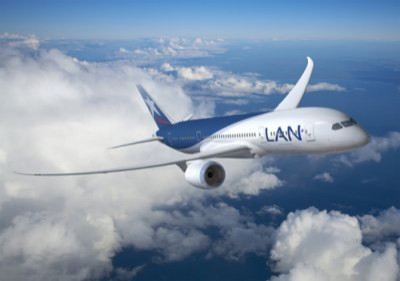IATA Report Reveals Profit Gain For Latin American Airlines, But Warns About Outdated Policies

The air transport industry in Latin America will double its net profit in just a year, according to a new report published by the International Air Transport Association (IATA). Latin America is the second-fastest-growing region for airline profits after the Asia-Pacific region.
The $700 million that Latin American air transport industry will net this year will climb to $1.5 billion in 2014, according to the IATA forecast. Opportunities for investment will be readily available next year as airlines continue to grow. The region’s airlines' EBIT (Earnings Before Interest & Tax) margins will also continue to improve, from 3.1 percent in 2013 to 5.1 percent.
However, the region’s airlines should not rest on their laurels. Airlines are burdened with outdated infrastructure that is not keeping pace with growth, and many countries have counterproductive policies that hinder the industry’s performance.
The most notable examples are none other than the largest economies in the region: Mexico and Brazil. IATA mentions the imposition by Mexico of a jet fuel tax that adds up to the cost of flights, in contravention of global agreements, according to the organization. Brazil, IATA noted, has an import parity pricing for jet fuel that, while not taxing it directly, has a similar impact.
Worse is the case of Venezuela, one that is still blocking, according to IATA, the repatriation of some $2.6 billion of the industry’s cash. (Venezuelan newspaper El Universal reported that the nation's government has offered to pay in state bonds and fuel.)
However, as much as the continent has work to do, some countries do set an example. Chile, for example, has worked hard to evolve a policy framework in which airlines can grow and drive economic growth. Chile had a quarrel with the Argentinian government in August when its largest airline, LAN, also the biggest on the continent, was banned from flying into Buenos Aires’ central Aeroparque airport, but then invited Aerolíneas Argentinas to fly within Chile.
Chile’s air transport industry also grew considerably during the last year, with traffic going up 7.2 percent from 2012.
IATA’s director Tony Tyler praised Latin American airlines for “demonstrating that they can overcome challenges in difficult environments for the industry” but signaled his worry over the increasing asphyxiating regulations.
“Some governments look like they want to exert excessive control, even in matters like passengers’ rights,” Tyler added.
IATA said that the air transport industry globally will move from a net profit of $12.9 billion in 2013 to an expected $19.7 billion next year. The upward revision reflects lower jet fuel prices as well as improvements to the industry’s structure and efficiency.
© Copyright IBTimes 2025. All rights reserved.




















